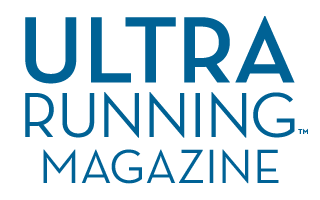In his new book, The Inflamed Mind, Edward Bullmore advances the theory that depression may be caused by inflammation. He observes that patients who have undergone painful surgeries resulting in inflammation often experience cognitive-related despair. Similar observations were made in patients fighting infections or injuries, conditions that activate the body’s immune response, creating inflammation.
This leads to an interesting parallel with running. While many of us run to ward off feelings of darkness and depression, it is fairly well-known that excessive amounts of running and racing can also create depression. The post-ultra blues is a phenomenon experienced by many, including myself. I’ve always attributed it to the psychological let-down of having reached the end of a journey. Even with buckle in hand or medal around my neck, the build-up to tackling a formidable undertaking was done. The task was complete. Melancholy was a natural response.
The Inflamed Mind got me thinking in other directions. What if there was another contributing factor causing this post-ultra gloominess? Runner’s World and Outside Magazine have both written about ways to fight the post-marathon blues, and there are many references online, but I have yet to discover anything implicating the excessive inflammation caused by long-distance racing, with depression. Perhaps there’s a link we’ve been overlooking.
In discussing the matter with CTS coach, Jason Koop, he likened the symptoms to postpartum blues. Only with racing, there is a lofty goal and intense focus. Afterwards, a big hole is left in the athlete’s life. He has coached several of his runners through this condition, but the excessive inflammation caused by ultrarunning was never suspected as a possible factor. Post-ultra blues have traditionally been thought of as mostly a mental descent.
If it is indeed the inflammation created by a tough race that is causing the depression, would combating the inflammation be a way to battle the symptoms? Mr. Bullmore suggests that new anti-inflammatory drugs for depression could hold the cure. Of course, many runners, including myself, are not big on drugs. But there are plenty of other ways to alleviate post-race inflammation including diet. Following an anti-inflammatory diet that avoids overly processed and refined foods and includes plenty of fresh fruits and vegetables, cold-water fish, green tea, turmeric and ginger, can be helpful. Cold therapy has also been shown to reduce inflammation. For me, active recovery helps reduce post-ultra swelling, as does keeping well-hydrated. The recent legalization of CDB and removal from WADA’s banned substances list gives us another powerful tool for combating inflammation.
However, it should be noted that Mr. Bullmore’s theory of inflammation causing depression is not without detractors. Many state that more research is needed before a causative relationship can be shown. Jason Koop rightly advises that post-race depression should be approached as multi-factoral. Still, I can’t help but wonder if this new way of thinking might hold the key for those prone to the post-race blues. If you are someone that suffers from this condition, addressing inflammation along with the other factors is certainly something worth considering. Reducing inflammation may in fact, reduce the blues.



